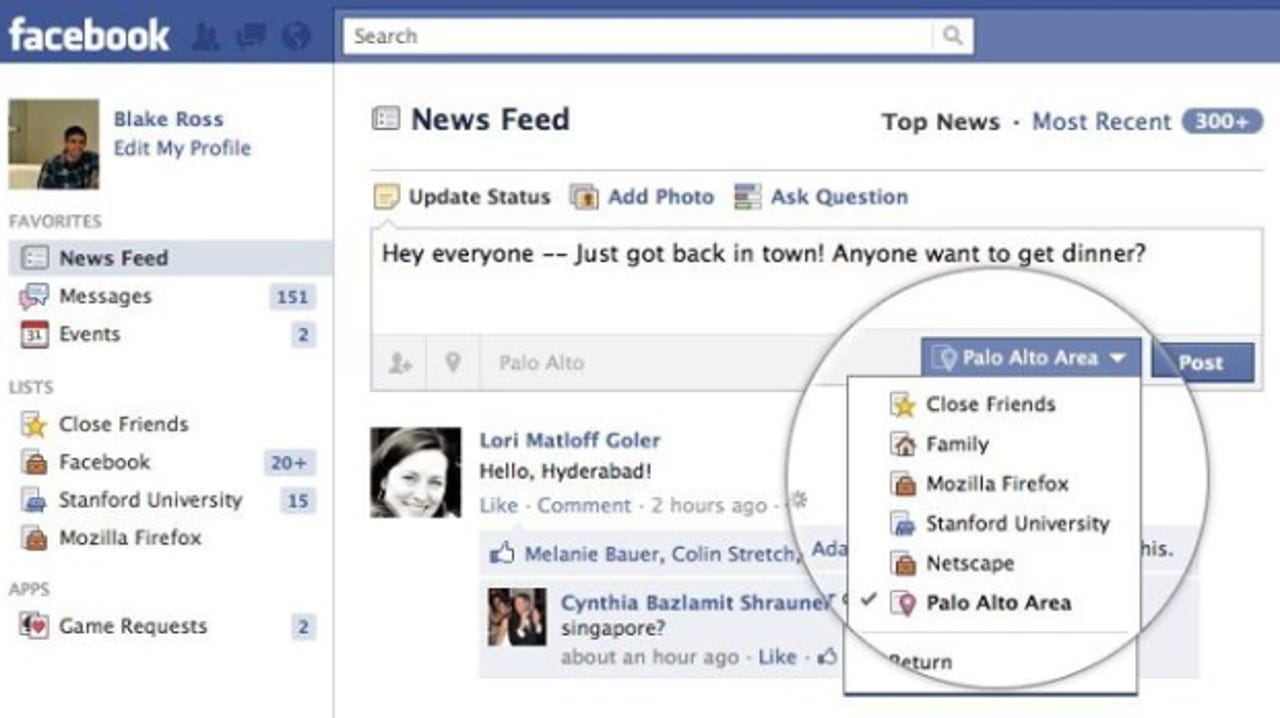Facebook revamps Friend Lists with intelligent grouping

As expected, Facebook has announced updates to its Friend Lists feature. The goal is make it easier to see more from the people you care about, as well as share content with only the right people. The improved Friend lists will be rolling out to everyone on Facebook this week.
Facebook has had the Friend Lists feature for a long time, but few users actually know about it, and even fewer use it. The social networking giant is responding to feedback about how time-consuming it is to organize these lists and keep them up to date.
Facebook has thus announced three improvements "to make lists incredibly easy and even more useful":
- Smart lists – smart lists create themselves and stay up-to-date based on profile info your friends have in common with you (like your work, school, family, and city)
- Close Friends and Acquaintances lists – see your best friends' photos and posts in one place, and see less from people you're not as close to
- Better suggestions – add the right friends to your lists without a lot of effort
Smart Lists, as the name implies, are intelligently-grouped lists of your Facebook friends. For instance, I have University of Toronto listed as my College under the Education and Work section on Facebook. I will soon see a smart list called "University of Toronto" appear on my Facebook account with all my friends who have the same school listed on their profile.
The Close Friends list is for all your best friends. If you add friends to this list, you'll see everything they post in your News Feed. Furthermore, you can filter your News Feed so that you only see their photos and updates. You can even choose to receive notifications when they post updates, so you don't miss anything important.
The Acquaintances list is for old classmates or business contacts that you want to see less of in your News Feed. Facebook will still use its algorithms to show you important things they post (like when they get married or move to a new city) but generally speaking you will see less of their updates.
The Restricted list is for your Facebook friends whom you don't want seeing your content. They will only see updates you specify as Public. The idea is to keep them as Facebook friends so you can still send them messages or tag them in a post if you want to connect to them from time to time.
As before, Facebook will also let you add or remove friends manually to make the lists more useful. From there, you can see updates as well as share content just with a specific list of friends.
There's a distinction that's worth noting between all these lists: smart lists (for your work, school, family, and city) are automatically created with friends inside. Close Friends, Acquaintances, and Restricted lists, however, are automatically created but you must manually add friends to them.
These changes won't affect lists you've created in the past, and you can still create custom lists if you choose. Your friends cannot see the name of a list you have put them into, but they can see each other's names for context. When you add someone as a friend or confirm a friendship request, you'll be able to add the friend directly into any of your existing lists.
These changes are quite obviously an answer to Google+ Circles. Two months ago, four Facebook engineers built Circle Hack, which lets you build friend lists on Facebook exactly how you build Circles on Google+. Here's what I wrote in my coverage:
Although Circle Hack is not an official Facebook product, it does show that Facebook employees care about fixing certain aspects of the social network. The new website is a pretty good imitation of the Google+ Circles feature. I hope that Google+ and Circle Hack inspire Facebook to fix how Lists are created on the social network.
Facebook is aware of what Google+ is good at. Thankfully, the company is eager to not only match what Google's social network offers, but to do better. I've said it before, and I'll say it again: competition is a good thing.
See also:
- Facebook testing automatically grouping friends into Smart Lists
- Facebook: export your friends' email addresses, if they let you
- Facebook engineers bring Google+ Circles to Facebook
- Facebook using natural language processing to group posts, link to Pages
- Facebook finally makes your exported data useful
- Facebook removes "hide all posts" option from News Feed
